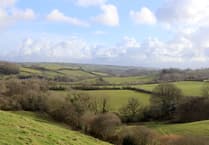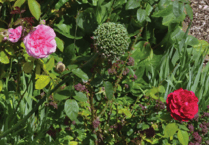This April traditional orchards across the country are marking Orchard Blossom Day 2023 by welcoming nature lovers, families and groups of friends to their sites in celebration of fruit trees, flowers and food.
Orchard Blossom Day falls on the last Friday in April, and sites across the country - from the Garden of England to the West Country - will host a variety of family-friendly activities for all to enjoy. There are around 50 different events taking place from late April into early May to choose from, including tours, produce fairs, picnics and practical crafts. Most are free to attend, too.
To find your nearest Orchard Blossom Day celebration, visit: www.ptes.org/orchard-blossom-day-sites
This annual springtime celebration of fruit trees, blossom, local produce and nature is coordinated by the UK Orchard Network. This partnership of organisations, led by wildlife charity People’s Trust for Endangered Species (PTES), work together to conserve traditional orchards, protect our fruit heritage and production, and the many species of wildlife that depend on this iconic, yet declining habitat.
Steve Oram, Orchard Biodiversity Officer at People’s Trust for Endangered Species (PTES) says: “Spring is the perfect time of year to get outside and appreciate nature, and what better way to enjoy the beautiful landscapes right on our doorsteps than by sitting in a sunny orchard bursting with blossom, breathing in the fresh air, watching pollinators buzz around you and sampling its produce?”
“Traditional orchards are teeming with life and are home to many rare species, but despite this they’ve experienced a devastating decline. Since the 1950s, 90% of traditional orchards have been lost due to neglect, development, or intensification. We hope showcasing the value of traditional orchards, and all that they can offer both people and wildlife, will help our ongoing conservation work to protect those that remain, and stop any more from disappearing completely.”
The reason traditional orchards are so important for wildlife is because they’re made up of several different types of habitats, including hedgerows, meadow grassland and woodland. This mosaic of habitats supports a huge range of biodiversity, including bats, butterflies, bumblebees and birds. The unique way fruit trees age creates a habitat that can’t be replaced or replicated, which is also why it is vital to maintain and protect them.
To find your nearest Orchard Blossom Day event, visit: www.ptes.org/orchard-blossom-day-sites and to find out more about The UK Orchard Network, visit www.orchardnetwork.org.uk




